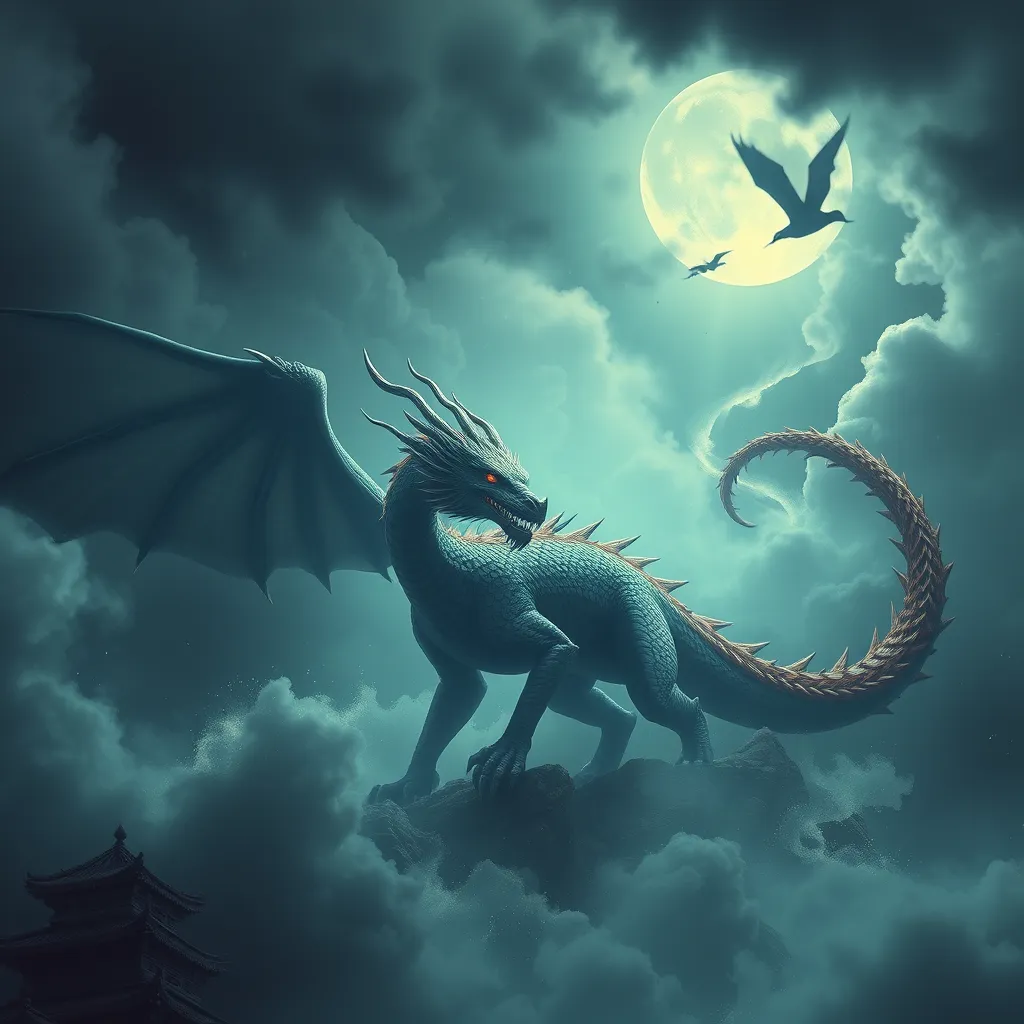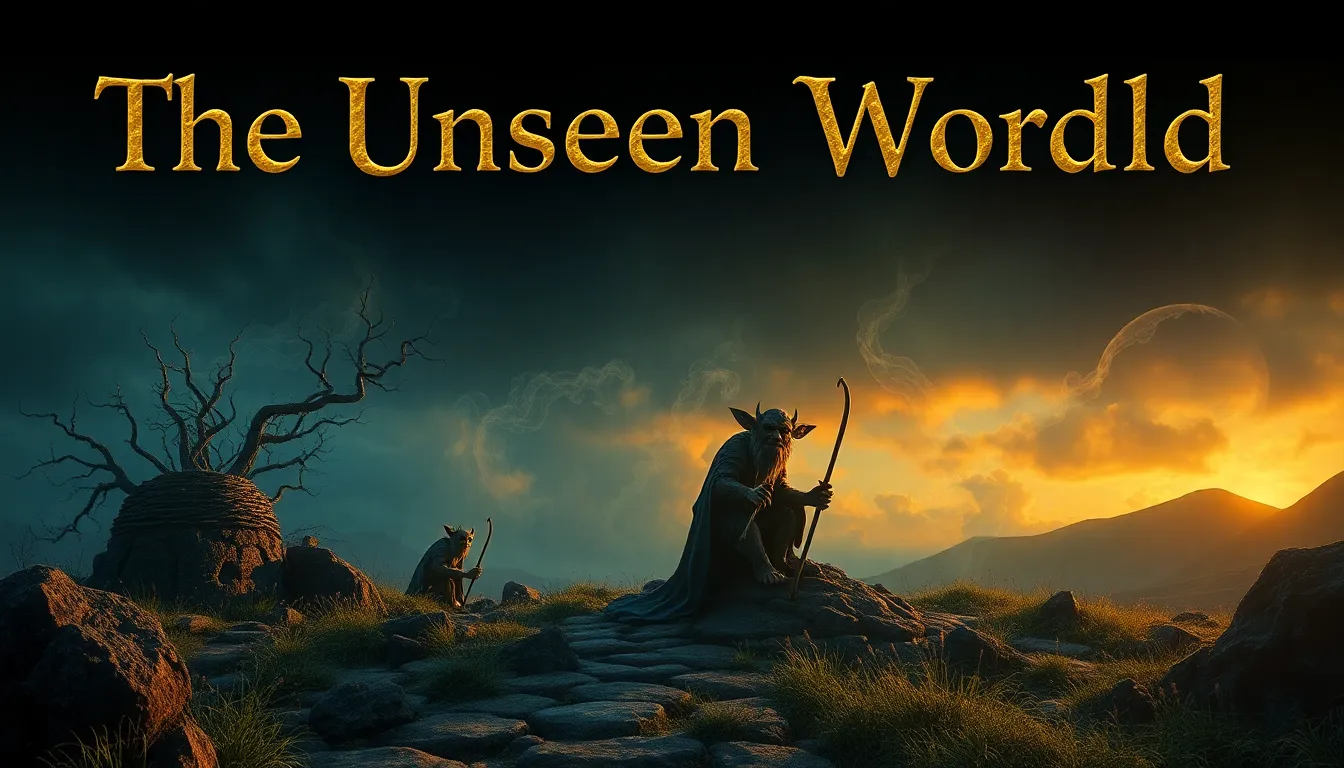The Dragon’s Journey: A Personal Exploration of the Meaning and Significance of Dragon Legends
I. Introduction
Dragons have captivated the human imagination for centuries, serving as powerful symbols in various cultures around the world. From ancient mythology to modern fantasy, the allure of these mythical creatures spans continents and eras. My personal connection to dragon stories has been profound, influencing both my worldview and creative pursuits. In this exploration, I aim to delve into the rich tapestry of dragon legends, their origins, cultural significance, and the lessons they impart.
II. The Origins of Dragon Myths
The origins of dragon myths can be traced back to ancient civilizations, where these creatures were often revered and feared. Historical evidence suggests that dragon-like beings were depicted in some of the earliest cave paintings and artifacts, hinting at their importance in early human consciousness.
Across various cultures, dragons have taken on distinct interpretations:
- Mesopotamian Dragons: Often associated with chaos and destruction, dragons like Tiamat represented primordial forces in creation myths.
- Chinese Dragons: Viewed as auspicious beings, they symbolize power, strength, and good fortune.
- European Dragons: Frequently depicted as malevolent creatures hoarding treasure and terrorizing villages.
Common themes associated with dragons include:
- The struggle between good and evil.
- The quest for knowledge and enlightenment.
- Transformation and rebirth.
III. Dragons in Different Cultures
When examining dragons, a notable distinction arises between Eastern and Western representations. Eastern dragons, particularly in Chinese culture, are often seen as benevolent and wise, embodying natural elements like water and rain. In contrast, Western dragons are typically portrayed as fierce adversaries, often defeated by heroic figures.
Prominent dragon myths from various cultures include:
- Chinese Dragon: The Dragon King, ruler of water and rain, plays a vital role in agricultural prosperity.
- European Dragon: The legend of Saint George and the Dragon symbolizes the triumph of good over evil.
- Middle Eastern Dragon: In the Epic of Gilgamesh, the serpent Siduri embodies wisdom and the mysteries of life.
Dragons play a crucial role in folklore and mythology, often serving as guardians of sacred treasures or as symbols of the human struggle against adversity.
IV. Personal Reflections on Dragon Legends
Throughout my life, certain dragon stories have profoundly influenced my beliefs and values. The tale of the Chinese dragon, with its association with wisdom and benevolence, resonates deeply with my desire for knowledge and understanding. Additionally, the fierce battles between knights and dragons in European lore have instilled in me a sense of courage in facing challenges.
Emotional connections to dragon characters, such as the wise dragon from How to Train Your Dragon or the complex, misunderstood Smaug from The Hobbit, have shaped my perception of strength and vulnerability. These narratives highlight the multifaceted nature of dragons and the human experience.
Lessons learned from these legends include:
- The importance of courage in the face of adversity.
- The value of wisdom and patience.
- The recognition that strength can manifest in various forms.
V. The Symbolism of Dragons
Dragons serve as powerful symbols of strength and power across cultures. In many traditions, they embody the duality of nature—capable of both destruction and creation. This duality is reflected in their portrayal as both benevolent protectors and malevolent adversaries.
The contemporary interpretations of dragon symbolism have evolved, often reflecting modern societal values:
- Empowerment: Many people see dragons as symbols of personal strength and resilience.
- Environmental Guardians: In recent narratives, dragons are depicted as protectors of nature, highlighting the need for ecological stewardship.
VI. Dragons in Modern Media
In contemporary literature, film, and games, dragons have taken on new forms, appealing to a broad audience. The portrayal of dragons has evolved, reflecting changing societal values and interests.
Some notable representations include:
- Literature: Works like Eragon and Game of Thrones have redefined dragon characters, giving them depth and complexity.
- Film: Movies like How to Train Your Dragon present dragons as companions and allies rather than mere antagonists.
- Games: Video games such as The Elder Scrolls V: Skyrim allow players to engage with dragons in multifaceted roles, from foes to allies.
The impact of these modern portrayals has been significant, often overshadowing traditional myths while simultaneously breathing new life into them.
VII. Personal Insights and Takeaways
Dragon legends have played a pivotal role in shaping my personal identity and values. They encourage a blend of strength, wisdom, and empathy, qualities I strive to embody in my life. The significance of storytelling becomes evident as these myths connect us to cultural heritage and shared human experiences.
In today’s world, the relevance of dragon myths remains strong. They serve as a reminder of the complexities of life, inviting us to explore our fears, dreams, and aspirations.
VIII. Conclusion
In conclusion, dragon legends hold immense importance across cultures, embodying various themes and values that resonate with individuals on a personal level. As we explore these myths, we uncover not only the stories of dragons but also the stories of ourselves. I encourage everyone to delve into their connections with mythological stories, for they hold the keys to understanding our past and our place in the world.
The enduring legacy of dragons in human culture is a testament to our fascination with the extraordinary, reminding us that within every myth lies a piece of truth waiting to be discovered.



